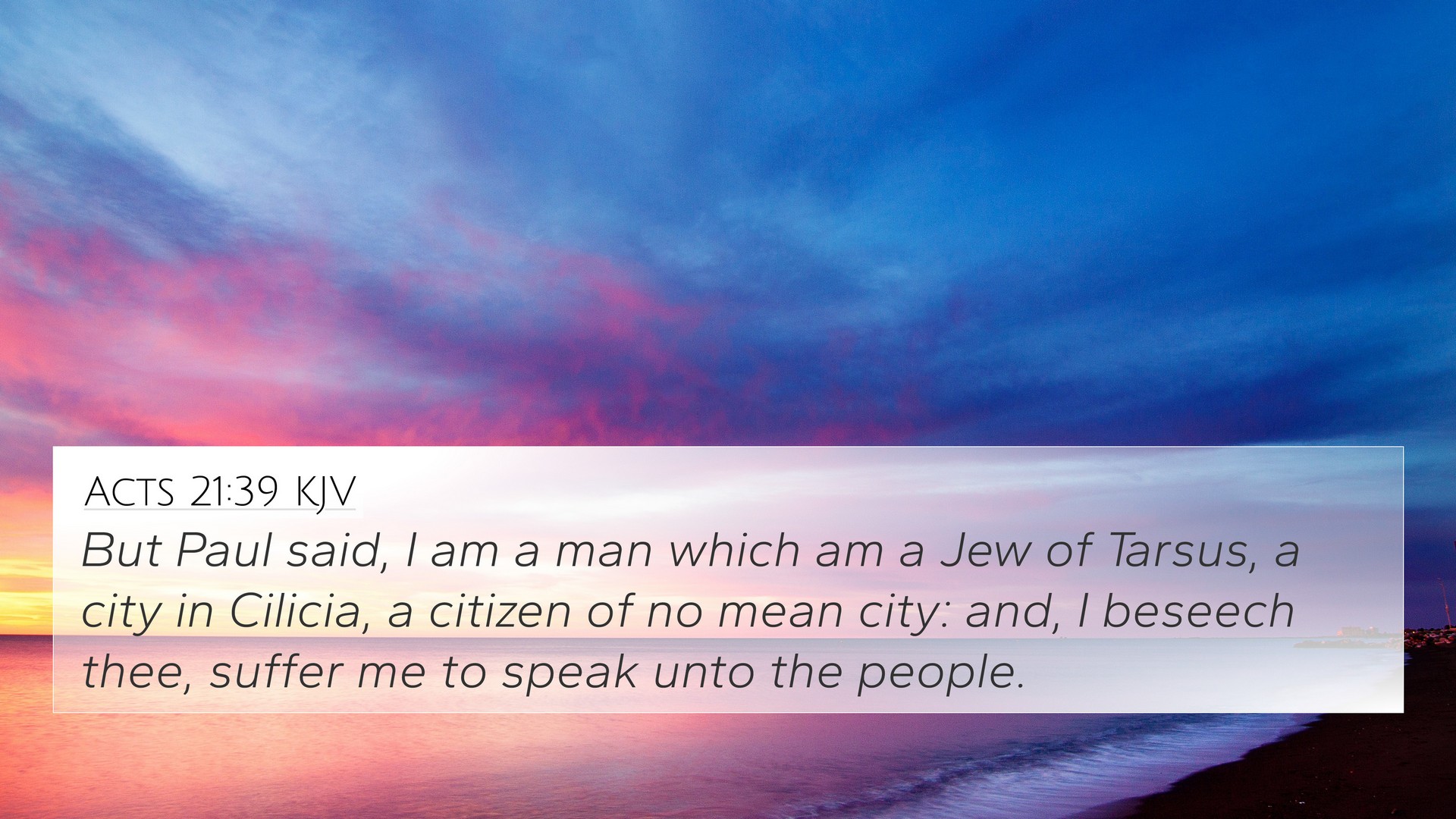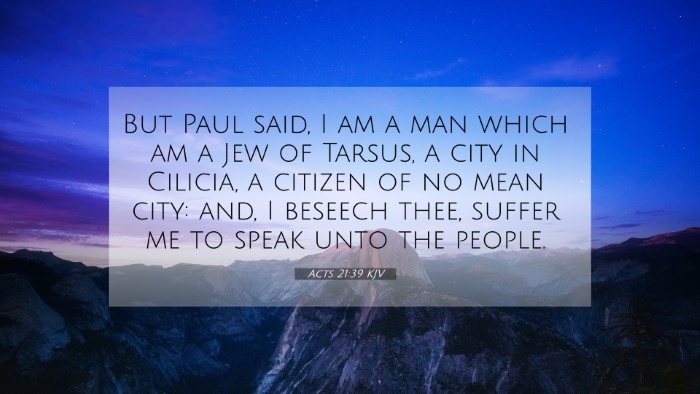This section features a detailed cross-reference designed to enrich your understanding of the Scriptures.
Below, you will find carefully selected verses that echo the themes and teachings related to Acts 21:39 KJV. Click on any image to explore detailed analyses of related Bible verses and uncover deeper theological insights.
 Acts 22:3 (KJV) »
Acts 22:3 (KJV) »
I am verily a man which am a Jew, born in Tarsus, a city in Cilicia, yet brought up in this city at the feet of Gamaliel, and taught according to the perfect manner of the law of the fathers, and was zealous toward God, as ye all are this day.
 Acts 9:11 (KJV) »
Acts 9:11 (KJV) »
And the Lord said unto him, Arise, and go into the street which is called Straight, and enquire in the house of Judas for one called Saul, of Tarsus: for, behold, he prayeth,
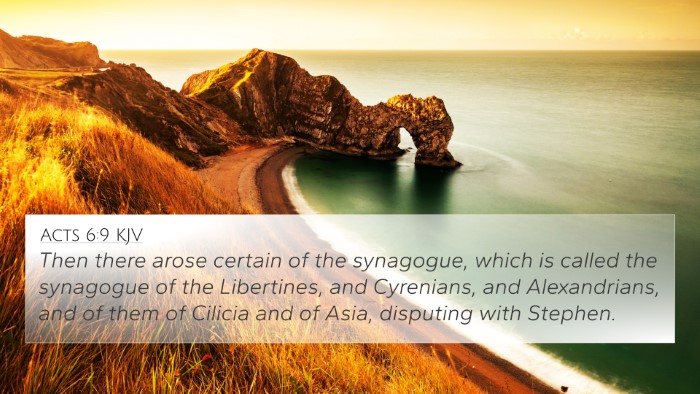 Acts 6:9 (KJV) »
Acts 6:9 (KJV) »
Then there arose certain of the synagogue, which is called the synagogue of the Libertines, and Cyrenians, and Alexandrians, and of them of Cilicia and of Asia, disputing with Stephen.
 1 Peter 4:15 (KJV) »
1 Peter 4:15 (KJV) »
But let none of you suffer as a murderer, or as a thief, or as an evildoer, or as a busybody in other men's matters.
 Acts 23:34 (KJV) »
Acts 23:34 (KJV) »
And when the governor had read the letter, he asked of what province he was. And when he understood that he was of Cilicia;
 Acts 21:37 (KJV) »
Acts 21:37 (KJV) »
And as Paul was to be led into the castle, he said unto the chief captain, May I speak unto thee? Who said, Canst thou speak Greek?
 Acts 9:30 (KJV) »
Acts 9:30 (KJV) »
Which when the brethren knew, they brought him down to Caesarea, and sent him forth to Tarsus.
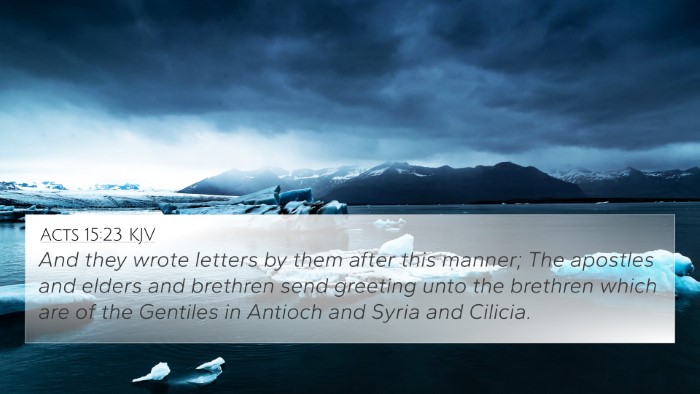 Acts 15:23 (KJV) »
Acts 15:23 (KJV) »
And they wrote letters by them after this manner; The apostles and elders and brethren send greeting unto the brethren which are of the Gentiles in Antioch and Syria and Cilicia.
 Acts 16:37 (KJV) »
Acts 16:37 (KJV) »
But Paul said unto them, They have beaten us openly uncondemned, being Romans, and have cast us into prison; and now do they thrust us out privily? nay verily; but let them come themselves and fetch us out.
 Acts 22:25 (KJV) »
Acts 22:25 (KJV) »
And as they bound him with thongs, Paul said unto the centurion that stood by, Is it lawful for you to scourge a man that is a Roman, and uncondemned?
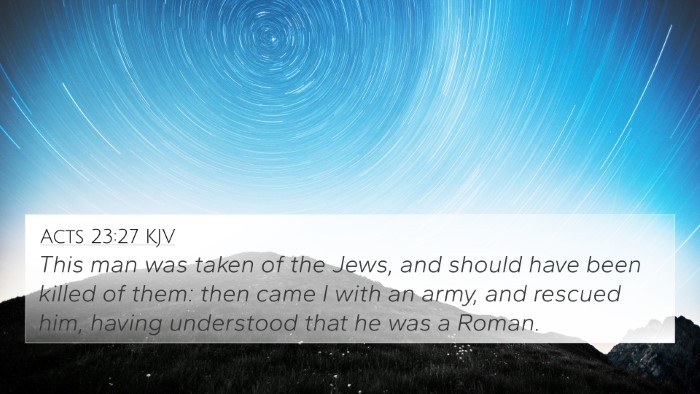 Acts 23:27 (KJV) »
Acts 23:27 (KJV) »
This man was taken of the Jews, and should have been killed of them: then came I with an army, and rescued him, having understood that he was a Roman.
 1 Peter 3:15 (KJV) »
1 Peter 3:15 (KJV) »
But sanctify the Lord God in your hearts: and be ready always to give an answer to every man that asketh you a reason of the hope that is in you with meekness and fear:
